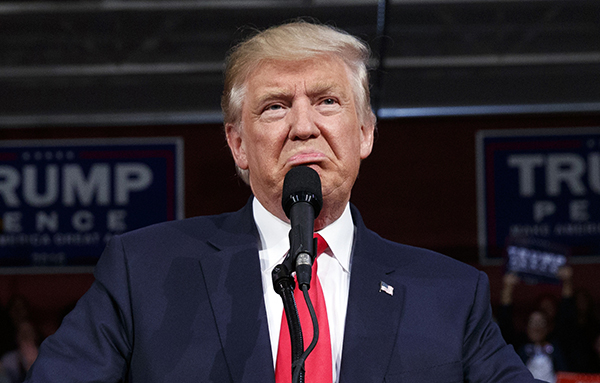
Recently, the US economy is facing unprecedented challenges, and the risk of economic recession is significantly increasing. According to analysis by CITIC Securities, the US job market has shown multiple signs of weakness due to multiple factors such as the Trump administration's layoffs and tariff concerns. These signals not only reveal the current predicament of the US economy, but also foreshadow the more severe economic situation that may be faced in the future.
The layoffs policy of the Trump administration has undoubtedly had a direct impact on the job market. The emergence of layoffs has led to a large number of unemployed people, which not only increases the economic pressure on society, but also exacerbates people's concerns about the economic outlook. At the same time, the tariff policies implemented by the Trump administration have also sparked widespread attention and controversy. These policies not only lead to retaliatory tariffs from trading partners, but also disrupt global supply chains, increase production costs, and reduce the competitiveness of enterprises. These unfavorable factors working together have put the US economy at risk of recession.
Multiple economic data also show that the risk of economic recession in the United States is rapidly increasing. The Atlanta Federal Reserve Bank's GDPNow model predicts that the US GDP for the first quarter of 2025 may be -2.4%. This data undoubtedly sounds the alarm for the market, indicating that the US economy is facing serious downward pressure. Negative GDP growth means a contraction of economic activity, which will have negative impacts on multiple aspects such as employment, consumption, and investment.
Under the uncertainty of Trump's policies, the US stock market has also experienced severe fluctuations. Recently, the US stock market has experienced a 'Black Monday', with the three major indices collectively closing down, with the Nasdaq Composite Index falling nearly 4%, hitting its lowest point in six months. This sharp drop triggered panic in the market, with investors selling their stocks one after another, leading to a further decline in the stock market. However, in the following trading days, the US stock market rebounded again, with technology stocks generally rising, bringing a glimmer of hope to the market. The volatility of the stock market reflects investors' concerns and uncertainties about the economic outlook. Under the influence of Trump's policies, investors' confidence in the US economy has been severely undermined. They are concerned that the Trump administration's layoffs and tariff policies will further worsen the economic situation, leading to adverse consequences such as declining corporate profits and rising unemployment rates. This kind of concern has been fully reflected in the stock market, causing severe fluctuations in the stock market.
Faced with the current economic situation and stock market fluctuations, investors need to remain calm and rational. They should closely monitor market dynamics and policy changes to timely understand the root causes and trends of economic recession risks and stock market volatility. At the same time, investors also need to develop reasonable investment strategies based on their own risk tolerance and investment goals. Under the uncertainty of Trump's policies, investors can adopt strategies such as diversification, reducing positions, and increasing cash reserves to reduce risks.
From a personal perspective, I believe that the risk of an economic recession in the United States is indeed increasing, but there is no need to be overly pessimistic. Despite the adverse effects of the Trump administration's layoffs and tariffs on the economy and stock market, the resilience and potential of the US economy cannot be ignored. Meanwhile, the strong growth of the technology industry also provides investors with certain investment opportunities and safe haven choices. Therefore, investors can actively seek and seize investment opportunities while maintaining calmness and rationality, in order to achieve asset preservation and appreciation.
The risk of a recession in the current US economy is significantly increasing, and the stock market has also experienced severe fluctuations under the uncertainty of Trump's policies. However, both investors and governments need to remain calm and rational, taking proactive measures to cope with the current economic situation and stock market fluctuations. Only in this way can we ensure economic stability and sustainable development.

According to a recent report by Rich Asplund, a columnist for Barchart, the global sugar market is currently experiencing a complex and profound supply-demand game.
According to a recent report by Rich Asplund, a columnist f…
On January 13th local time, the three major US stock indice…
Recently, the 2026 edition of the MIT Technology Review lis…
On January 15, 2026, the US military announced the seizure …
At the 2026 J.P. Morgan Healthcare Conference, a joint anno…
For much of 2025, the market was rethinking whether the dol…